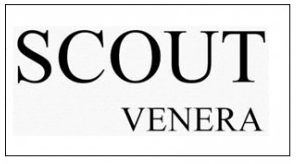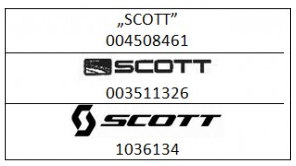A trademark application was filed in Class 12, among others, for the mark SCOUT VENERA (Figure 1), which was used for bicycles.

Figure 1
The owner of the EU trademark SCOTT (Figure 2), which was also registered in Class 12, filed an opposition on the grounds of likelihood of confusion and genuine use of its mark.

Figure 2
The Hungarian Intellectual Property Office (HIPO) found that the opponent had sufficiently proved the use of its marks. In addition, after considering the visual and phonetic similarities between the applied-for mark and the opponent's marks, it held that there was a likelihood of confusion. The applicant requested a review by the Metropolitan Tribunal, which was successful. After examining the evidence of use, the tribunal held that offers made online are unsuitable substitutes for traditional means of proof (eg, invoices and delivery notes), as the law requires genuine use. As the tribunal found against the opponent in this regard, it did not examine the likelihood of confusion. The opponent filed an appeal with the Metropolitan Court of Appeal, which was dismissed. The court agreed with the facts established by the tribunal and the way in which it had applied the law (8.Pkf.26.417/2016).
Case law clearly demonstrates that opponents in opposition and cancellation procedures must often prove the genuine use of their mark. However, whether online publicity constitutes acceptable proof of use has been the subject of debate. The Metropolitan Tribunal expressly recognised the role of the Internet in commerce and imposed a higher standard of use – namely, evidence of realised sales (eg, invoices and delivery notes) – as proof of genuine use. This is the traditional means of assessing genuine use. Notably, this standard is different in cases involving infringement. According to both Hungarian and EU Court of Justice case law, online publicity can constitute proof of use in infringement cases. The reason behind these diverse approaches may be that the function and purpose of the various provisions concerning use and enforcement are different. Regardless, it would be advantageous to have identical parameters for all kinds of use. Although the Metropolitan Tribunal and the Metropolitan Court of Appeal were right in declining to examine the question of likelihood of confusion in this case, it can be argued that, contrary to the HIPO's opinion, such a likelihood did not exist.
For further information on this topic please contact Alexander Vida at Danubia Patent & Law Office LLC by telephone (+36 1 411 8700) or email ([email protected]). The Danubia Patent & Law Office website can be accessed at www.danubia.hu.
This article was first published by the International Law Office, a premium online legal update service for major companies and law firms worldwide. Register for a free subscription.



